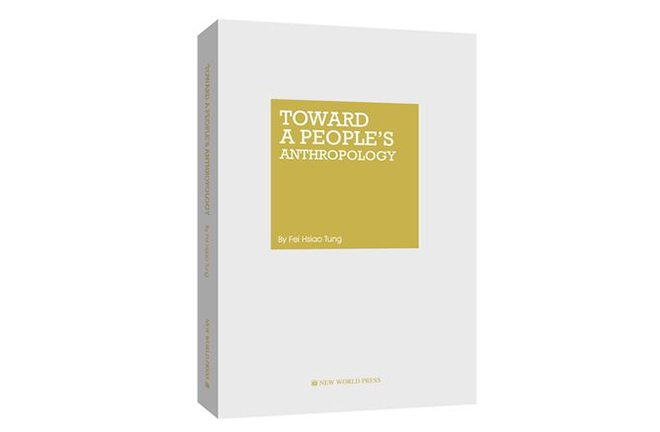People’s anthropology

FILE PHOTO: Focusing on anthropology is conducive to promoting disciplinary development.
Anthropology originated in the West as a discipline through which scholars sought to understand human societies via foreign cultural studies. However, Fei Xiaotong raised the concept of anthropology for the people in Toward a People’s Anthropology, asserting that the discipline’s purpose is to use scientific knowledge to transform human society.
Epistemological transformation
This marked a significant epistemological shift in anthropology within China. What began as a Western approach to understanding “the other” has been reinterpreted by a generation of Chinese anthropologists returning from their studies abroad as “homegrown” anthropology aimed at “knowing China and serving China.” This shift has prompted the development of a new methodology for studying China: community surveys.
Anthropology is currently a second-level discipline under the social sciences umbrella, and it also intersects with the first-level discipline of ethnology. Some anthropologists have tried to advance anthropology into a first-level discipline. However, if we reflect on the original intentions of early Chinese anthropologists and recognize that anthropology inherently seeks to engage with the lives of ordinary people, then pursuing a path of anthropology rooted in the community may be a more meaningful direction for contemporary Chinese anthropology than striving for first-level discipline status.
Today, while anthropology appears somewhat marginal within the academic system, it has paradoxically emerged as a new trend in public culture outside of traditional academic frameworks. In my involvement with a public anthropology project—the Hehetang Humanities Reading Group—I found that classic anthropological texts seem to attract a larger number of young people from various fields compared to quantitative research. This dual phenomenon, where anthropology is somewhat marginalized within the system yet gaining mainstream recognition outside of it, highlights its unique appeal in engaging with the everyday lives of ordinary people. Moving into communities, serving ordinary people, and collaboratively building a better society and culture alongside them seems to be a promising direction for adapting anthropology to China’s context. This aligns with Bronislaw Kaspar Malinowski’s assertion that anthropology should evolve into an applied science.
To achieve this, “community surveys” are clearly a crucial step in the anthropological approach in entering the homes of ordinary people. The essence of anthropological methodology lies in immersing oneself into the world of others, understanding “foreign cultures,” and using them as mirrors to reflect on one’s own society. Conducting long-term, systematic “fieldwork” among the general public is considered a defining feature of anthropology that distinguishes it from other social sciences. Anthropology that goes into the lives of ordinary people requires the ability to comprehensively survey social organizations, communities, or ethnic groups, over periods lasting from a few months to several years. The goal is to gather detailed and reliable first-hand data, which is indispensable for practicing anthropology grounded in the lives of the ordinary people.
Dialogue & action
However, to become an applied science, it is not enough to simply conduct community surveys. Anthropologists must also ensure that the participants in these surveys are aware of the findings and can engage in an equal dialogue with the researchers. Through this dialogue, both the anthropologists and the participants can better observe and understand their own lives, cultural meanings, and social structures. It is also through this dialogue that participants come to realize they are being seen and respected, prompting them to reflect on their own lives and situations. If there is any spare capacity, anthropologists should also engage in discussions with those being surveyed to explore the social problems they face.
The efforts of one generation after another of anthropologists who have engaged with ordinary people have advanced this “people’s anthropology” to a central aspect of anthropology adapted to China’s realities. This trend continues to this day. If anthropology aims to engage with ordinary people and become accessible to the general public, then Chinese anthropology need not necessarily become a standalone first-level discipline. Its inherent tendency to reflect on and critique modernity enables it to exist as a dispersive discipline that can continue to function theoretically and methodologically within sociology, ethnology, history, folkloristics, and even philosophy, literature, and the arts. It transcends disciplinary boundaries, or perhaps it can be considered a “super-discipline,” one dedicated to addressing issues facing China and humanity. With this aim, anthropology can inspire interdisciplinary dialogue with other disciplines, spurring their development.
Action anthropology must break disciplinary boundaries and establish itself as a holistic and reflective science. Rooted in fieldwork, conversing with the people, engaging with ordinary people, and promoting community transformation, it returns to its original mission: exploring a direction for human society.
Zhu Jiangang is a professor from the School of Sociology at Nankai University.
Edited by ZHAO YUAN
